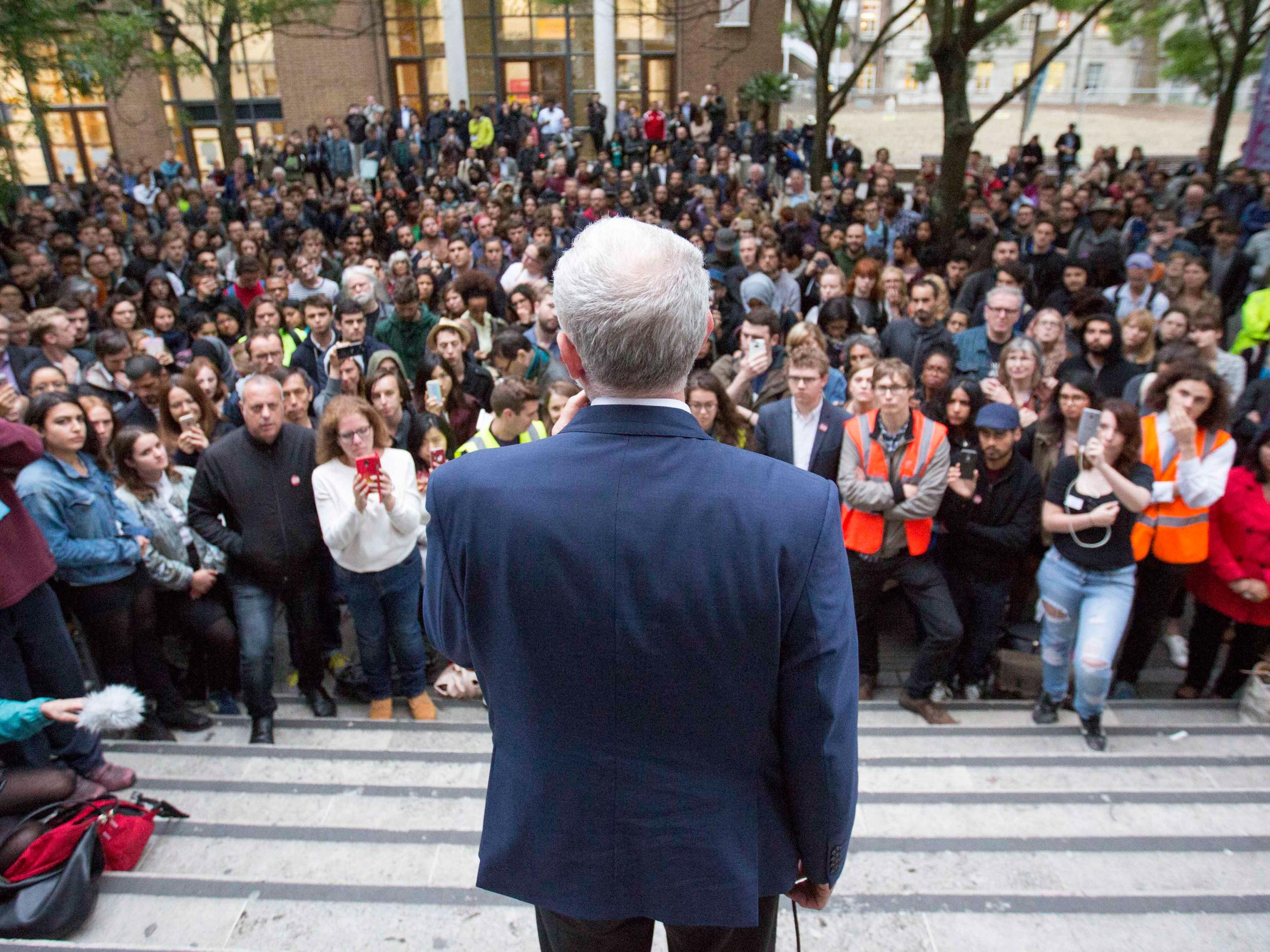Labour leadership contest: The truth about £3 party supporters and Jeremy Corbyn
As new rules are introduced ahead of 10 weeks of political wrangling, can the leader keep his job?

Your support helps us to tell the story
From reproductive rights to climate change to Big Tech, The Independent is on the ground when the story is developing. Whether it's investigating the financials of Elon Musk's pro-Trump PAC or producing our latest documentary, 'The A Word', which shines a light on the American women fighting for reproductive rights, we know how important it is to parse out the facts from the messaging.
At such a critical moment in US history, we need reporters on the ground. Your donation allows us to keep sending journalists to speak to both sides of the story.
The Independent is trusted by Americans across the entire political spectrum. And unlike many other quality news outlets, we choose not to lock Americans out of our reporting and analysis with paywalls. We believe quality journalism should be available to everyone, paid for by those who can afford it.
Your support makes all the difference.The political party leadership turbulence triggered by the EU referendum has calmed significantly in the blue corner with the appointment of Theresa May as Conservative Party leader and the UK’s new Prime Minister.
But Labour's tumult as the parliamentary party attempts to oust current leader Jeremy Corbyn is set to continue for another 10 weeks.
New rules have been decided, Angela Eagle and Owen Smith have announced their candidacy and there are more than two months of debate, wrangling and campaigning to come before the party announces its leader.
And after all that, it could well be Mr Corbyn again after it was decided that existing leaders must be included on Labour ballots.
In the wake of Labour’s defeat under Ed Miliband at the 2015 general election, Mr Corbyn won a landslide 59.5 per cent of the vote to become the party’s new leader.
The second-placed candidate was Andy Burnham. with 19 per cent, while Yvette Cooper received 17 per cent of the vote and Liz Kendall 4.5 per cent.
But controversy surrounded Labour’s voting system, which was being used for the first time, with reports of “entryism” from the far-left and even Conservatives who relished the chance of a Corbyn-led opposition skewing the vote in his favour.
Previously, MPs, union members and party members had a third of the vote each in leadership contests.
But the rules introduced by Mr Miliband introduced a “one member, one vote” system and allowed registered supporters of the party to sign up and vote for £3.
These supporters were a significant boost to Mr Corbyn. According to Labour List, 84 per cent of the £3 voters backed him.
Meanwhile, among the full Labour Party membership, 49.6 per cent voted for him - meaning, contrary to widespread perception, he would have comfortably won the leadership even without the backing of those who paid £3 to be 'supporters'.
In the coming leadership election, the rules have now changed significantly, though who will benefit most is unclear.
The £3 supporters are gone as registered supporter status entitles individuals to voting in just one leadership. Instead, those now wishing to become a registered supporter must now pay £25 to vote, and will only be able to sign up during a two-day window between 18 and 20 July.
And more controversially, the party has agreed that anyone who became a member after January 12 2016 will not be eligible to vote, even if they have paid the full membership fee of £47.
More than 130,000 people have signed up during this period, many of whom are thought to have done so in support of the leader.
However, they may pay the £25 to become both a registered supporter and a full member, thereby allowing them to vote in the leadership contest.
The reduced selectorate created by the higher cost of voting, is thought to favour Mr Corbyn’s opponents.
In particular this is because support for Mr Corbyn among party members is reportedly waning due to the EU referendum result.
A YouGov poll for the Times in the week following the referendum in June showed that, among full Labour party members, Mr Cobyn’s approval rating slipped dramatically to +3, down from +45 in May - and that 54 per cent want him to resign before the next general election.
However, the significantly higher cost of becoming a registered supporter may also work against Mr Corbyn’s opponents, whose support will largely depend on winning over a selectorate who largely voted in favour of the current leader.
Despite Mr Corbyn’s fall in approval rating, the poll revealed that in a leadership competition between Ms Eagle and the current leader, Mr Corbyn would triumph by 50 per cent to 40 per cent. A total of 10 per cent said they would not vote or did not know.
Join our commenting forum
Join thought-provoking conversations, follow other Independent readers and see their replies
Comments